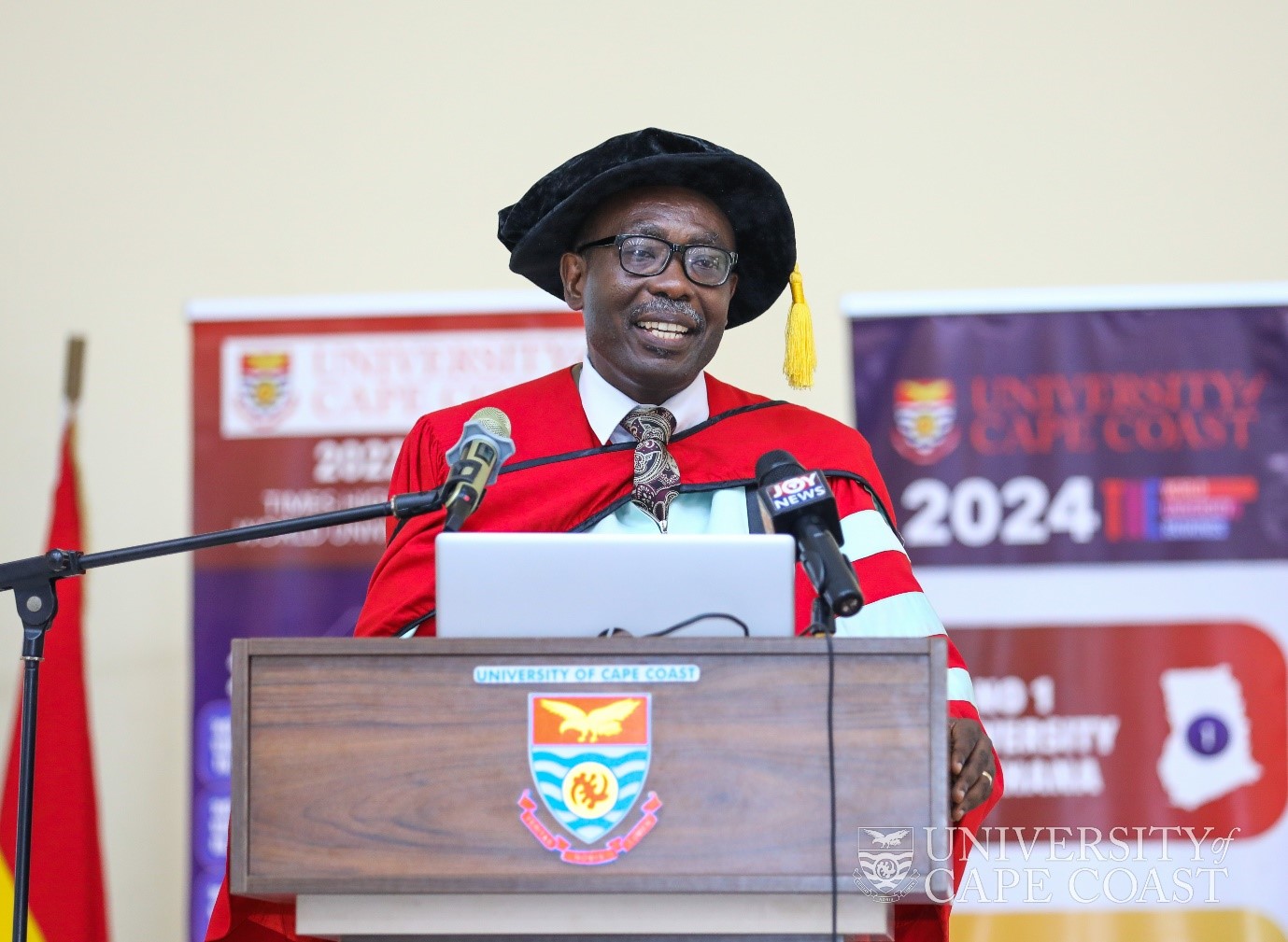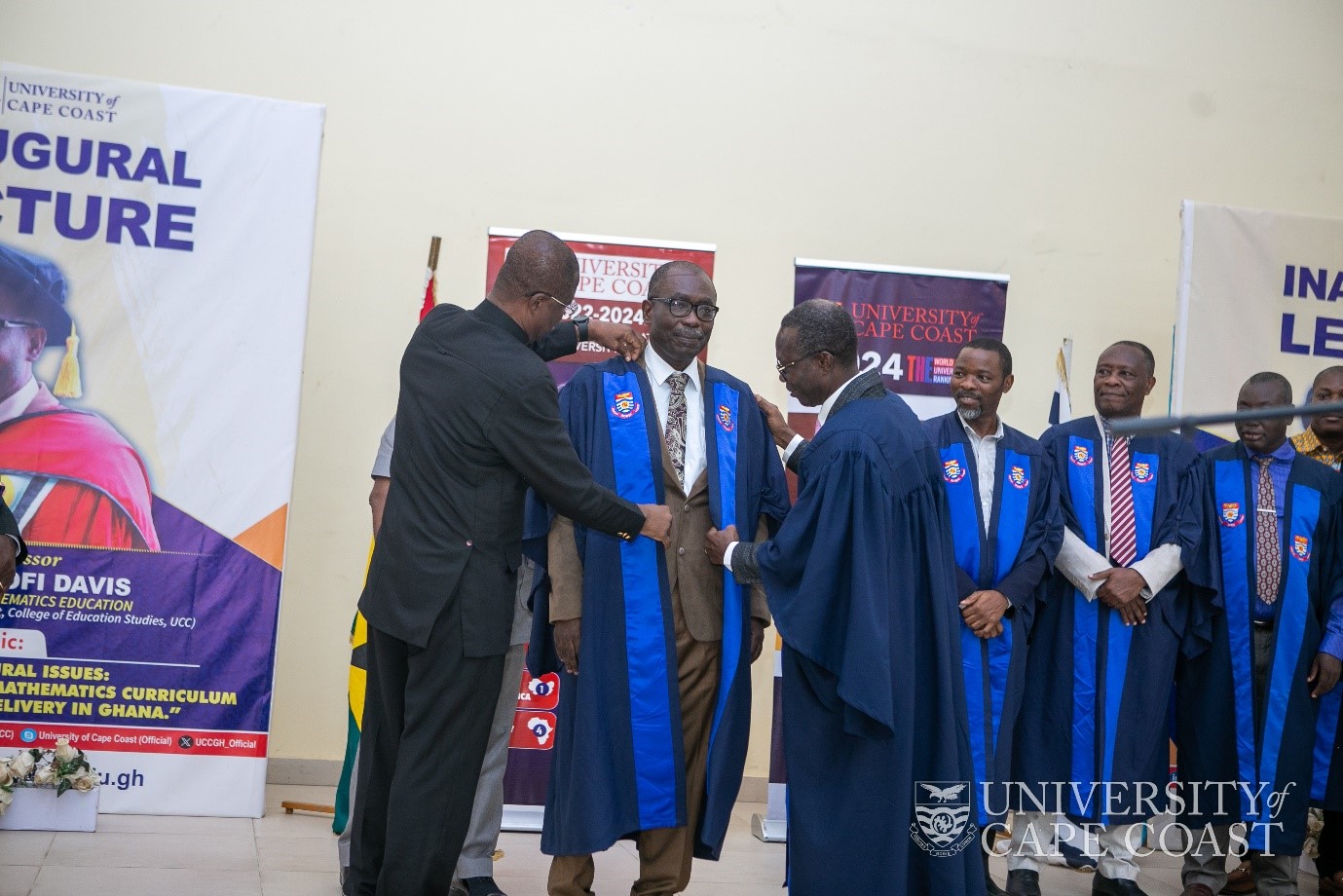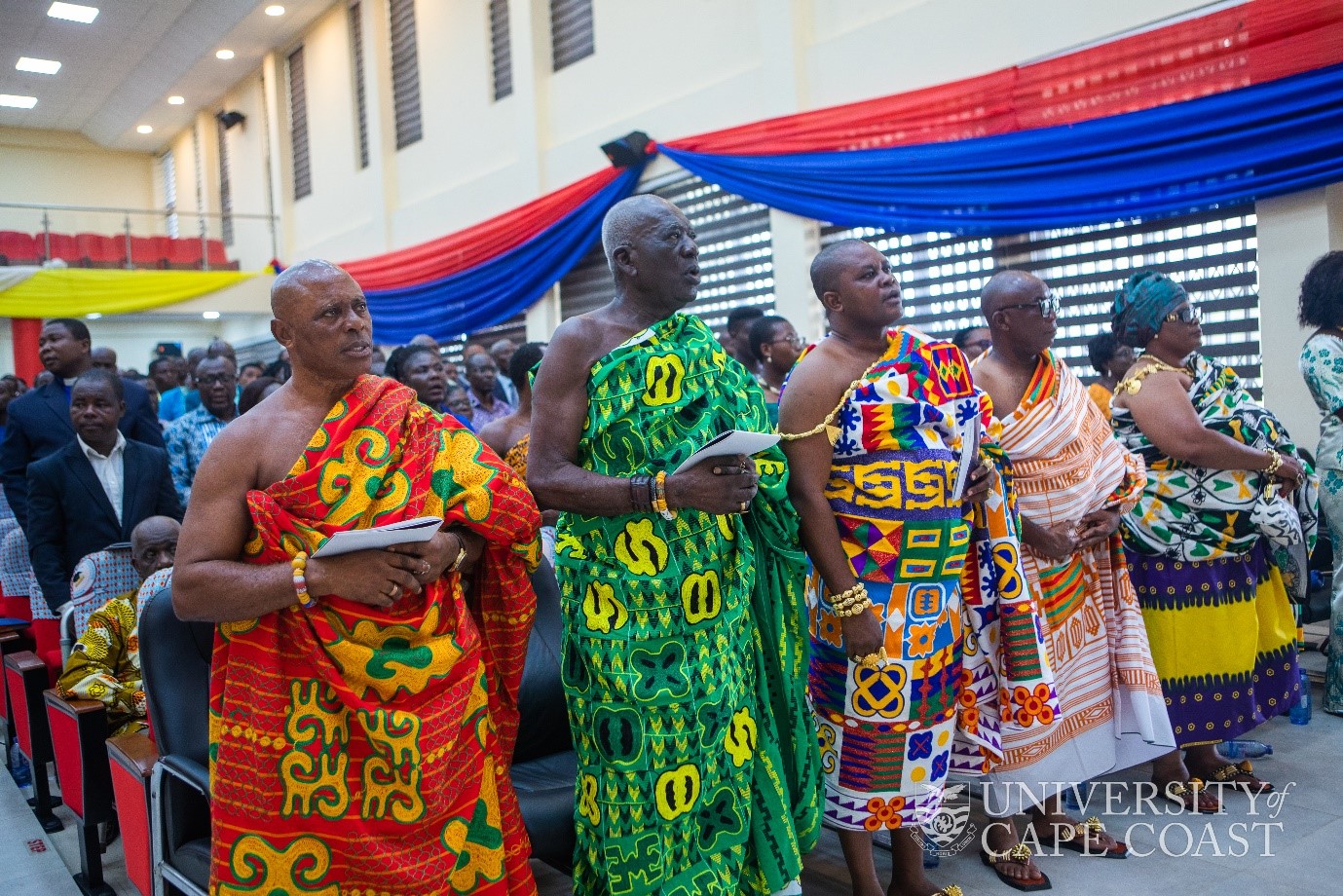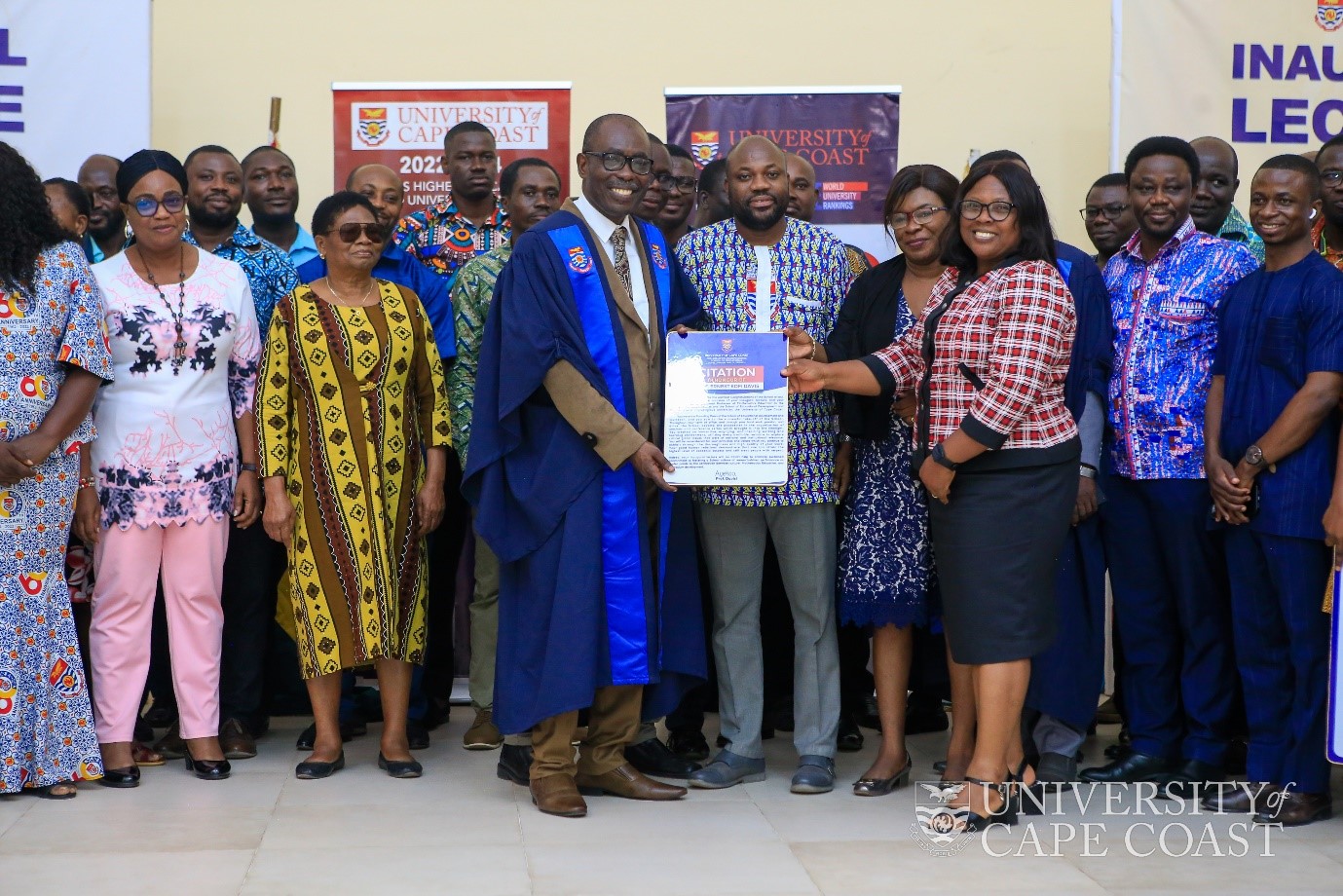A professor of Mathematics Education at the University of Cape Coast (UCC), Prof. Ernest Kofi Davis, has stressed the need for social and cultural issues, including values in mathematics to be considered seriously in mathematics curriculum development and delivery in the country.
That, according to him, would make the teaching and learning of the subject relevant to students.
To him, mathematics was often taught out of context to students using foreign concepts, making it difficult for them to link those abstract concepts to their everyday realities, culminating in poor performances.
Prof. Davis made these suggestions at his inaugural lecture which was on the theme, “Sociocultural Issues: A Missing Ingredient in Mathematics Curriculum Development and Delivery in Ghana.”
Prof. Davis being robed by former VC-UCC, Prof. Joseph Ghartey Ampiah (L) and Prof. Johnsonson Nyarko Boampong, Vice-Chancellor (R)
He maintained that while the literature suggests that every culture generates its mathematics that may not be the same as the “Western” or “international mathematics”, curriculum development and delivery in mathematics appears to adopt the culture-blind approach.
Prof. Davis, also the Provost of the College of Education Studies-UCC, stated that students’ mathematical competence should be built on what they already know.
“If we want to train students who are relevant to the current demands of our 21st century, then the students will require adequate mathematical skills otherwise they cannot survive the 21st century demand”, he noted.
“To make the teaching and learning of Mathematics relevant to students from indigenous communities and sub-Saharan African countries that were once colonised, there is the need to appreciate the local aspect of mathematical knowledge, values and the local aspect of Mathematics pedagogy, and their implications for curriculum development and implementation”, Prof. Davis continued.
The Oguaamanhen, Osabarima Kwesi Atta II (in green) flanked by some traditional leaders
Prof Davis said stakeholders paid very little attention to the social and cultural factors as well as the cognitive mode of students in the development and implementation of Mathematics curricula. That approach, he noted, disabled the students’ abilities to develop the ideal mathematical proficiency.
“I argue that students who are labelled as weak and eventually excluded from formal education may be so labelled not because they are weak in Mathematics but because curriculum development and delivery systems continue to ignore and deny the existence of students’ everyday mathematical representations and practices,” he stressed.
Staff members of the College of Education Studies-UCC presenting a citation to Prof. Davis
Prof Davis added that the government’s agenda to modernise classrooms at the basic school level should transcend political generations for the classroom environment to be modelled to support modern approaches in teaching.
Source: Documentation and Information Section-UCC




